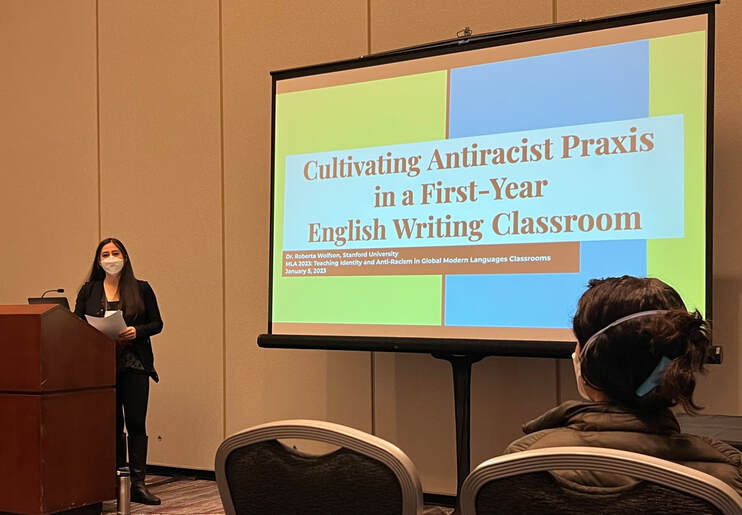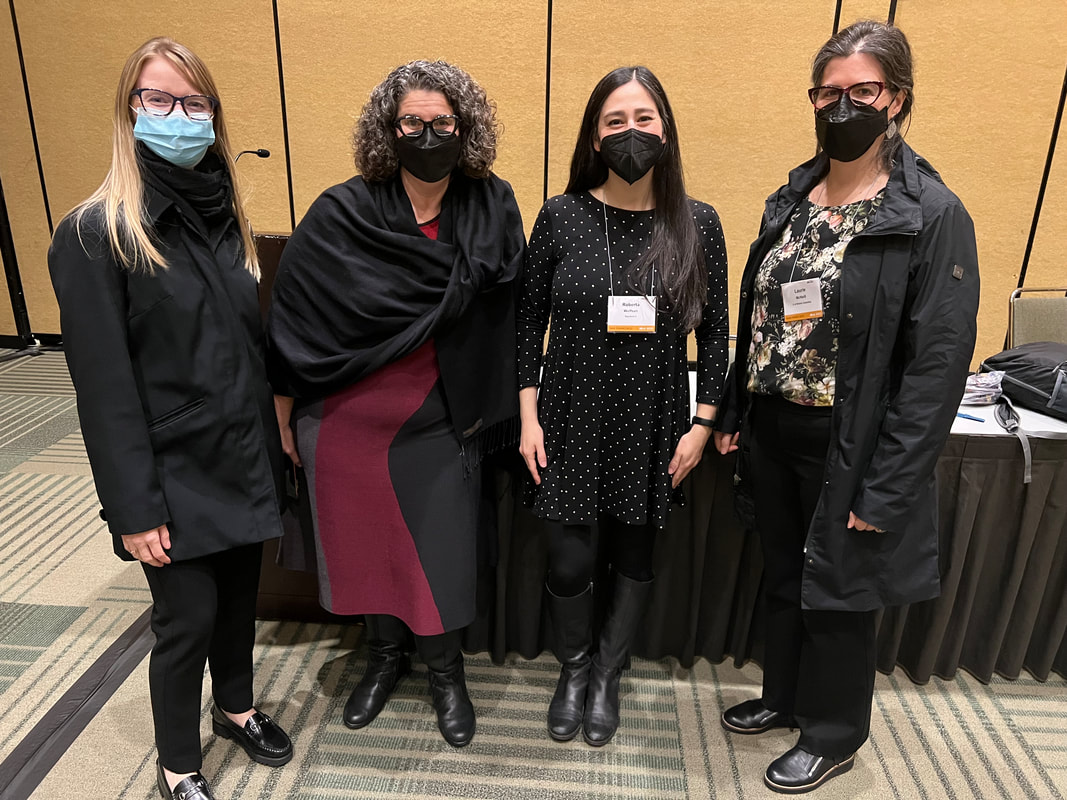|
This past week, I had the pleasure of attending and presenting at the 138th meeting of the Modern Language Association, which took place from June 5-8, 2023 in San Francisco. This annual gathering brought together thousands of teachers and scholars dedicated to the study of language and literature to share their ideas and research related to the presidential theme "Working Conditions." According to the conference organizers, this theme invited conversation about the following questions:
Throughout the convention, I participated in two sessions focused on exploring the various kinds of labor that I perform as a university writing instructor and literary scholar. First, I presented a talk entitled "Cultivating Antiracist Praxis in a First-Year English Writing Classroom" for a pedagogy-focused panel, "Teaching Identity and Anti-Racism in Global Modern Languages Classrooms." In this talk, I provided an overview of how I teach my first-year course, “Writing for Liberation: The Rhetoric of Antiracism," in the Program in Writing and Rhetoric at Stanford. I sought to answer the question of how instructors of English language and writing might cultivate a commitment to antiracist reading, writing, and research practices in undergraduate students through curricular content. I explained how I have designed my course with two critical goals in mind: first, to show students how white language supremacy dominates rhetorical production in U.S. society and second, to equip them with the critical frameworks necessary to challenge such white language supremacy in their own work as writers and researchers. I encountered an unusual situation when I arrived to deliver this talk. Given the historic Bay Area storms taking place at the time of the conference, none of my fellow panelists were able to attend. This meant that I was the sole presenter in front of an audience of over 30 educators and scholars. Due to this unexpected format change, I ended up delivering a stand-alone talk and leading a dynamic Q&A that lasted over an hour. The audience asked powerful questions about how to dig deeper into the work of building inclusive and antiracist writing pedagogy, and I ended up having one of my most memorable and fun conferencing experiences. Fortunately, my second panel, "(Auto)biographies of/as Work," was attended by all of the expected participants, including a scholar who was videoconferencing in from Turkey. Organized by the MLA Life Writing division and presided over by Laurie McNeill (University of British Columbia), this panel sought to consider how forms of autobiography capture, create, and/or critique experiences and conditions of work and labor, as well as how authors view the work of memoir. I delivered a talk titled "Testifying, Witnessing, and Mourning: Care-Based Labor in the AIDS Memoir," which presented research from a chapter of my current book manuscript. In this talk, I read Dr. Abraham Verghese's memoir My Own Country: A Doctor’s Story (1994) as a critical work of care-based literary labor that chronicles his work as an infectious disease specialist in the U.S. South during the 1980s AIDS crisis and seeks to challenge damaging fear-based approaches to managing this epidemic by modeling a contrasting approach rooted in empathy. I was joined by Rüstem Ertug Altinay (Kadir Has University), who presented on queer autobiographical Turkish literature, Deborah Cohler (San Francisco State University), who presented on memoirs written by military spouses, and Kimberly Hall (Wofford College), who presented on memoirs authored by women employees of Silicon Valley tech companies. Taken together, our talks painted a fascinating picture of the powerful work that autobiography can do to build community, expose damaging cultural practices, reclaim identity and agency, and deconstruct notions of what counts as "labor." In addition to delivering these presentations, I enjoyed attending many other riveting panels, reconnecting with former colleagues from UC Santa Barbara and Cal Poly, SLO, and visiting with my book editor. After kicking off the new year in such an invigorating way, I am excited to bring back what I learned into my research and teaching this winter quarter.
0 Comments
Your comment will be posted after it is approved.
Leave a Reply. |
AboutCheck out this page for periodic updates about my research, teaching, and community work. |

